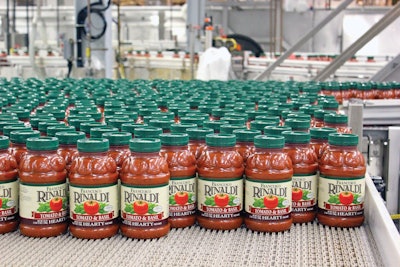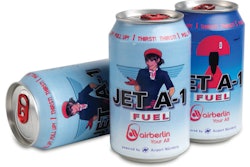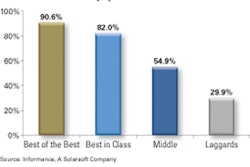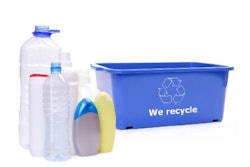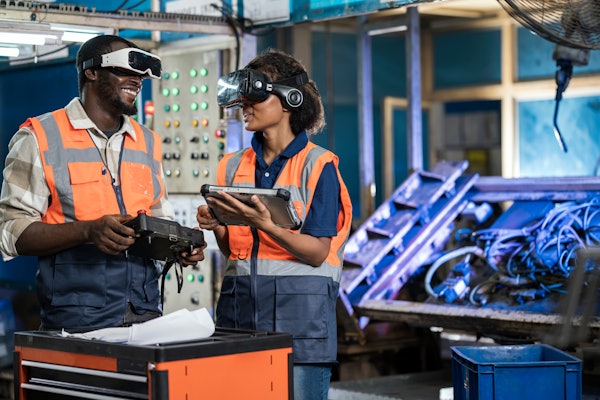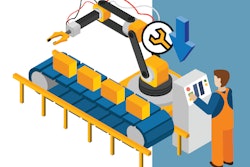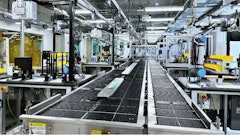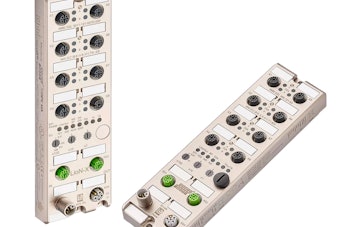Many U.S. businesses understandably wish to forget about the years 2008-2009 and the deep recession, but for Fairport, NY-based LiDestri Foods, Inc., those difficult times proved to be a springboard for success (see sidebar story), in part thanks to rising sales of pasta sauce, which makes for economical meals in households across the country.
By 2011, LiDestri’s Rochester, NY, facility was rebuilt, with multiple new and updated packaging lines, including an 1,100 bottle/min pasta sauce line that fills glass jars in sizes ranging from 6 oz to 45 oz.
Alan Davis, LiDestri’s Vice President of Business Development and Contract Manufacturing, explains that the company purchased its Rochester facility—more than 1 million sq ft in all—from Eastman Kodak. LiDestri consolidated operations from several different facilities to the former Kodak building. The facility is divided into two buildings, a 625,000-sq-ft location for manufacturing, packaging, and warehousing, and a 400,000-sq-ft building primarily for distribution and additional warehousing.
The larger, South-side plant is used primarily for the manufacturing of sauces, and includes the high-speed glass line and a new line that Davis describes as a smaller “boutique line that runs 30 to 50 bottles per minute.” The North-side plant produces spirits, oils, vinegars, cooking lines, and syrups. Altogether, the Rochester location houses 11 manufacturing and packaging lines, many of which are new. The site also includes a still-developing innovation center that involves customer collaboration on recipe and project development, as well as investigating new product and packaging technologies.
LiDestri derives about 70% of its work from contract manufacturing, with the remaining 30% including both private label and its own brands, including Francesco Rinaldi pasta sauce and Santa Clara salsa. Packaging equipment and material vendors are selected based in part on existing business relationships and specific project needs and requirements.
The pasta sauce and salsa glass packaging line runs on a five-day, 24-hour/day schedule, producing many varieties and sizes. Davis explains that the line is fully automated. “Glass comes in bulk, gets rinsed and cleaned and goes right to the filler. The sauce is pre-batched in blending tanks. It’s cooked in-process on the fly on its way to the filler.”
Primary equipment used on the line includes Elmar piston filling and closing systems equipped with electronic controls and closure application systems from Crown Cork & Seal. LiDestri’s primary glass supplier is O-I. LiDestri uses both lug-style metal closures and continuous-thread caps sourced from various suppliers. After filling and capping, bottles pass through x-ray inspection and metal detection equipment.
Davis says LiDestri uses “several different labeling technologies,” mainly equipment from Krones. “The majority of the Krones labelers in our systems are Krones Solomoduls. We like them because they are modular, so we can run a product and plug-in a module—one might be a hot melt wraparound machine and one might be a cold-glue machine applying front and back labels. With that we can use one machine, for example, instead of five machines.” Downstream, bottles go through tray-packing and palletization steps prior to distribution to customers.
Fresno, CA developments
Last year, LiDestri also made a major investment in its Fresno, CA, plant by becoming as Davis believes “the first in North America” to be able to fill and package low-acid, retorted, spouted pouches using robotic retort loading and unloading equipment from Stock America.
Although the company cannot divulge customer names or identify specific packages being run on the line, Davis does say they are for stand-up, spouted baby food packages that are available commercially.
Addressing the packaging technology, Davis explains, “There are lots of people in North America that can accommodate hot-filled versions, high-acid products, but we were the first to be able to fill a low-acid product that includes proteins or dairy components in a low-acid spouted pouch.”
Davis adds that while the Rochester facility produces primarily glass packages, this line in Fresno employs flexible packaging. Specifically, the company is using Guala Pack out of Italy. Guala Pack supplies both premade spouted pouches and the rotary filling equipment used to fill them. LiDestri also uses Cheerpack North America flexible packaging, which is affiliated with Guala Pack.
LiDestri worked with Stock America to develop a robotic handling and conveying system for the pouches. Stock partners with LAN, a Netherlands-based specialist in handling systems for this particular application, which includes a robotic checkweighing, x-ray inspection, and conveyance system.
“We are currently producing 3-oz and 4.5-oz shelf-stable products. These are stand-up pouches with a choke-proof cap,” notes Davis. The cap is welded into a foil/nylon pouch. The pouch material is rotogravure-printed in up to eight colors for the products, which are marketed toward infants and children.
Davis says LiDestri wasn’t initially pursuing this particular demographic market, but struck a manufacturing agreement with an organization shortly after acquiring the packaging technology, which it will be able to use to seek additional business for the line.
